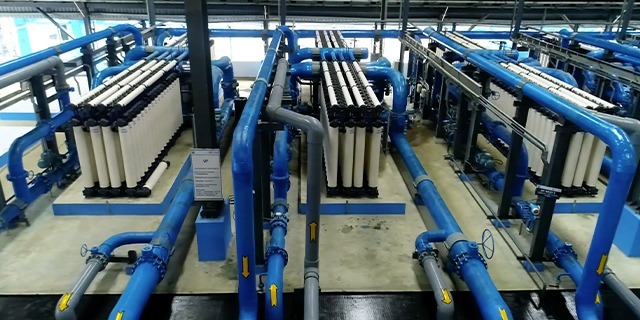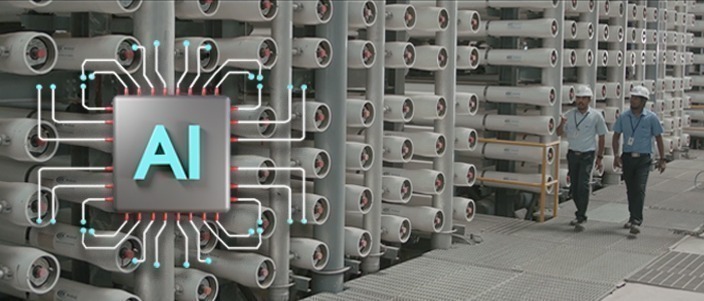Desalination – Healthy Hydration from the Sea!
01 December 2023 Submitted by Dr. Nitin V. Thombre

Water scarcity is looming large among arid and coastal regions since a couple of decades. Desalination, the process of removing salt and other impurities from seawater or brackish water to produce fresh water, has become a subject of considerable interest as a perennial and viable solution to water scarcity. While it offers the promise of addressing water shortages in arid regions and coastal areas, there are debates surrounding the implications and impact of large-scale desalination operations. Here let us explore how desalination is a panacea to many people living in water scarce and water stressed regions in the world.
- Water supply security: Desalination provides a reliable source of freshwater that is not dependent on rainfall or surface water availability. It offers a solution to regions facing chronic water scarcity, ensuring a consistent water supply for domestic, agricultural, and industrial purposes.
- Diversification of water sources: By utilizing seawater or brackish water sources, desalination diversifies water supplies, reducing reliance on limited freshwater resources. This can help alleviate the pressure on groundwater reserves and protect ecosystems from over extraction.
- Enhanced resilience to climate change: Desalination can enhance resilience to climate change impacts, such as prolonged droughts and changing precipitation patterns. It offers a potential buffer against water shortages, particularly in regions vulnerable to climate-related water stress.
- Energy consumption: Desalination processes, particularly reverse osmosis, are energy-intensive. But with greener solutions coming into picture, simultaneously improving the efficiencies of the processes, this negative effect can be minimized and can be brought to zero in near future.
- Concentrate disposal: The concentrated brine, a byproduct generated during desalination requires proper disposal. Innovative solution for brine disposal, such as brine dilution to be in place.
- Cost and affordability: Desalinated water is of course more expensive than traditional freshwater sources. But, there are certain regions where the rate of evaporation is greater than rate of precipitation, desalination plays a key role in providing the best quality water in affordable prices for certain communities or developing countries with limited financial resources.
In conclusion, desalination offers an alternative solution to water scarcity, providing a reliable and diversified source of freshwater. By integrating renewable energy sources, improving desalination technologies, and better brine disposal offers a viable solution to water scarcity in water arid regions and coastal areas in the world.







